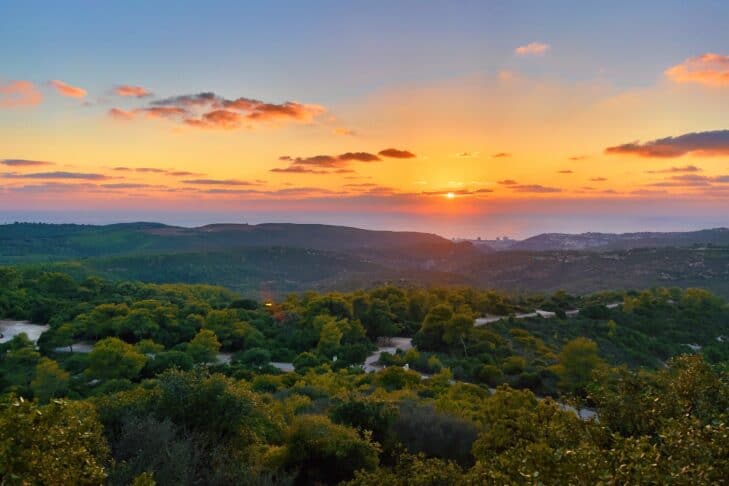I have been living in Haifa for over 10 years. I came to the city thanks to my studies, and I stayed there because the nature, the green and the quiet made me peaceful, and the distance from Haifa to Ashkelon is about two hours in total.
I grew up in Ashkelon and I am very proud of it. In the last two weeks I find myself saying again and again that I choose hope. I put on a smiling mask and a good will to do and help, but the truth is that for two weeks I’ve been walking around with existential anxiety, an anxiety I didn’t know before. I am a scholar of wars as someone who grew up in Ashkelon, who knows the alarms, and despite this, this time there is something different in the air—a kind of tension and a thundering silence, which I cannot explain to myself and which actually started on that damn morning of Oct. 7.
On the morning of Saturday, Oct. 7, I was in Haifa, and planned to go for a walk with friends. At 6:30 a.m., my sister sent a message in the family group and asked if everything was okay with us. My family in Ashkelon explained that these are usually alarms that we have been used to for years. But after about 10 minutes, she sent another message and wrote that there was probably a fear of terrorist infiltration and asked us to lock the doors and not to leave the house. I tried to be restrained and strong, but it didn’t exactly work for me.
I called my father, who speaks mostly Amharic, and explained to him what needed to be done. The hours passed and the terrible news began to arrive. My nephew was being asked to return to the army, my friends were being asked to join the reserves, and the anxiety is seeping in more and more.
The next morning I woke up to an anxiety attack, and then I read a post that my friend wrote; the main idea of the post was to choose hope, and I decided, at that moment, that I choose hope.
The first days are very difficult.
The rockets fall in Ashkelon and Ashdod, not far from the homes of my two sisters and my brother. To distract myself from the situation in which my family is, I go into cleaning mode, go to sleep with friends, write new songs and try to be calm, which I fail to do.
On the fourth day of the war, terrorists infiltrated Ashkelon, and I was told that they were close to my sister’s house and many gunshots were heard outside. I immediately called the police and was on the line with them until the terrorists were eliminated, which meant four hours of fighting. At that moment, I made a decision that I wanted to bring my family to my house in Haifa, and from the moment I made the decision, I started making arrangements to bring them to Haifa, until they all arrived at my house.
Then we received the bitter news that one of my family’s relatives, a soldier who fought bravely in Kibbutz Kissufim, was killed while saving his comrades from the battalion. The sadness was very great and clouded the joy of being reunited with my family.
Right now we are 10 people in a two-and-a-half room apartment, and although it is very crowded, I feel quiet and peaceful and happy that my family is close to me and not under missile attacks. Everyone is pitching in to help us, both the members of the Ethiopian community in the city and the participants of the “Shagrirot” program, of which I am a member.
Today, when I see my father smiling and my nephews happy, I understand that my choice for hope was really successful and correct.
I chose hope!
Nanny Bruk is a participant in the “Shagrirot” (ambassadors) program of CJP’s Boston-Haifa Connection Shared Society Committee. Shagrirot is a platform where Ethiopian Israeli women leaders serve as role models in their communities for youth.


